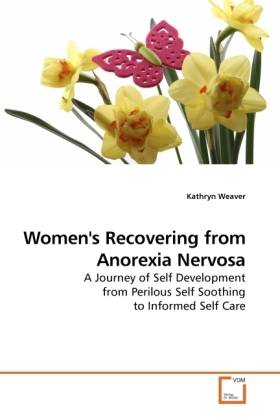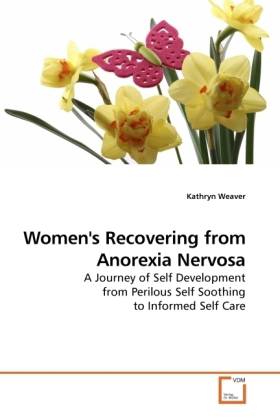
- Afhalen na 1 uur in een winkel met voorraad
- Gratis thuislevering in België vanaf € 30
- Ruim aanbod met 7 miljoen producten
- Afhalen na 1 uur in een winkel met voorraad
- Gratis thuislevering in België vanaf € 30
- Ruim aanbod met 7 miljoen producten
Zoeken
Omschrijving
This feminist grounded theory study explains the process of recovery from the perspectives of twelve Canadian women. Interviews with these women were analyzed to uncover basic processes of increased awareness of feelings and goals, ability to differentiate own needs while in relationships with others, and capacity to manage uncomfortable emotions. Women strive to overcome not knowing myself (being controlled, feeling uneasy, and constantly comparing self to others) and losing myself to the anorectic obsession (being lured by the eating disorder, letting it take over, and hiding it from others). At a turning point, finding me, women begin to see the eating disorder as a problem and accept responsibility for recovery. They practise taking care of myself by working through both eating and non-eating issues, developing positive self concept, and gaining support from others. In celebrating myself, women overcome vulnerabilities that allowed the anorexia nervosa to develop in the first place. They invest in relationships that meet their needs, adopting a more compassionate informed acceptance toward self and the world. These findings provide a general resource for women and clinicians.
Specificaties
Betrokkenen
- Auteur(s):
- Uitgeverij:
Inhoud
- Aantal bladzijden:
- 204
- Taal:
- Engels
Eigenschappen
- Productcode (EAN):
- 9783639239706
- Verschijningsdatum:
- 10/03/2010
- Uitvoering:
- Paperback
- Formaat:
- Trade paperback (VS)
- Afmetingen:
- 152 mm x 229 mm
- Gewicht:
- 303 g

Alleen bij Standaard Boekhandel
+ 155 punten op je klantenkaart van Standaard Boekhandel
Beoordelingen
We publiceren alleen reviews die voldoen aan de voorwaarden voor reviews. Bekijk onze voorwaarden voor reviews.











